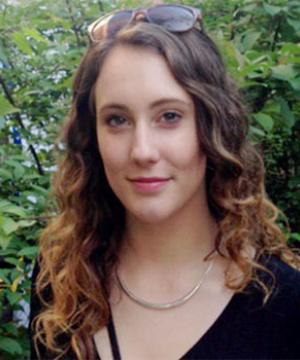Students Play Vital Role in Death Row Case
When Columbia Law School student Nika Cohen ’18 went to an Alabama prison over the summer to visit Doyle Lee Hamm, who has spent three decades on death row, she took along a bag of quarters to buy Hamm a few sandwiches from the vending machine.
Her visit was part legal work — Cohen and Phoebe Wolfe ’18 are helping with Hamm’s case under the supervision of Professor Bernard E. Harcourt, who has represented Hamm since 1990 — and part human kindness. (Hamm has been on death row since 1987, when he was convicted of fatally shooting a motel clerk during a robbery.)
Hamm has cranial and lymphatic cancer; his health has been deteriorating for years despite treatment — and yet the Alabama Attorney General’s office is pursuing his execution to the fullest. On December 13, 2017, at the state’s request, the Alabama Supreme Court ordered that Hamm be executed by lethal injection on February 22, 2018.
“I think this case is the perfect example of all of the problems with the death penalty,” Wolfe said. “You have someone who faced injustice at the trial level, wasn’t represented by competent counsel — everything worked against him. It shows the real problems with having such a permanent sentence.”
Hamm’s cancer and cancer treatment, Wolfe said, only make his case more inhumane.
“They’re keeping him alive so that they can execute him,” she said.
Harcourt — together with Cohen, Wolfe, and two Columbia University graduates, Egon Von Conway CC ’17 and Isadora Ruyter-Harcourt BC ’16 — is actively trying to prevent Hamm’s execution. He has taken claims of an unconstitutional prior conviction and ineffective assistance of counsel all the way to the U.S. Supreme Court. At this point, however, he argues that executing Hamm by lethal injection would violate the Eighth Amendment’s prohibition on “cruel and unusual punishment” because Hamm’s veins have been compromised by his cancer and treatment, making it unlikely that the drugs could be properly administered.
A botched execution could “cause Mr. Hamm to become paralyzed and consciously suffocate,” according to Dr. Mark J. Heath, an anesthesiologist at New York-Presbyterian/Columbia Hospital and a professor at Columbia University who has written and testified about lethal injections and examined Hamm in September. Such a result, Heath wrote, would be “an agonizing death.”
When the state first moved to set an execution date in June, Harcourt reached out to a former student, Kelsey Ruescher ’18, editor-in-chief of the Columbia Law Review, who sent out a quick message to see if any students there would be interested in working on the case. Cohen and Wolfe, both editors, were quick to respond. Wolfe had taken a criminal law class with Harcourt during her first year and a seminar on Nietzsche with him in her second; Cohen was spending the summer at the Southern Center for Human Rights in Atlanta, Georgia, where Harcourt got his start on capital cases as well.
Harcourt, who also has advocated for people impacted by President Trump’s immigration orders, discusses his cases in class and often involves students in his work. Michael Cassel ’16, for instance, traveled with Harcourt to Atlanta and sat at counsel table for oral arguments in the Hamm case before the U.S. Court of Appeals for the Eleventh Circuit.
Cohen and Wolfe both had prior experience working on capital cases. They each took an externship last spring called Constitutional Rights Enforcement: Capital Punishment, Life Imprisonment and Post-Conviction Relief, which placed them in Squire Patton Boggs’ Public Service Initiative.
Harcourt said the students’ work has been invaluable.
“Working with Nika and Phoebe has been a godsend,” Harcourt said. “When the state moved for an execution date on June 23rd, it felt like we’d just gotten sucker punched. Doyle was out of sorts. To have Nika and Phoebe jump on the case, with so much talent and dedication, has truly been one of the most rewarding experiences.”
Cohen and Wolfe, who both want careers in public interest, said they had learned a lot from the experience — about capital cases and themselves.
“Professor Harcourt promised to stick with Mr. Hamm, and to see that commitment actually play out is amazing,” Cohen said. “That’s taught me the kind of lawyer I want to become.”
The admiration is mutual.
“Nika and Phoebe’s deep personal commitment and their unbending support, working so well with Egon and Isadora also, has been an inspiration to me,” said Harcourt. “It has kept Doyle and me going. Together, we’ll make it through this next hurdle. I pray.”
Read More:
Bernard Harcourt's Op-Ed in the New York Times
Alabama Sets Execution Date for Doyle Lee Hamm
Doyle Lee Hamm v. Alabama blog
###
Posted on December 18, 2017

